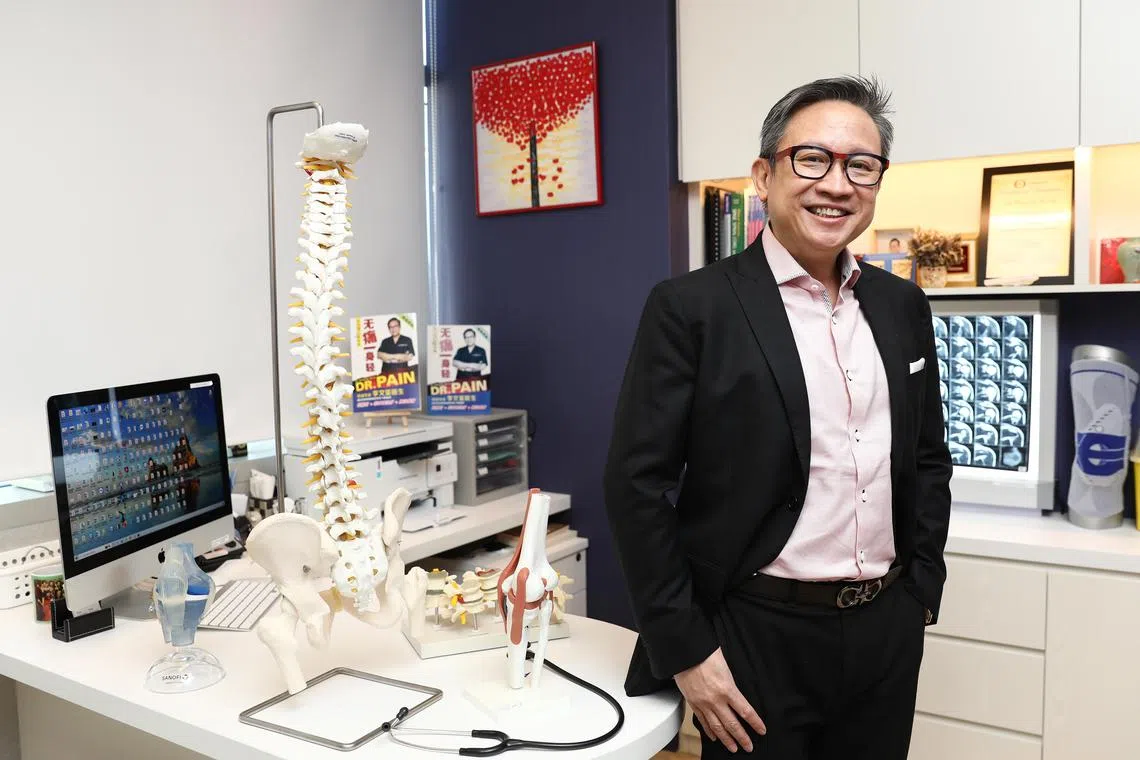Singapore Paincare postpones scheme meeting after Sias raps company for WhatsApp messages
Sign up now: Get ST's newsletters delivered to your inbox

WhatsApp messages to shareholders ahead of an Aug 28 scheme meeting were signed by Singapore Paincare CEO Bernard Lee (above) and chief operating officer Jeffrey Loh.
PHOTO: BT FILE
SINGAPORE – Medical services company Singapore Paincare has postponed an Aug 28 scheme meeting to vote on a privatisation offer, it announced in a bourse filing on the night of Aug 27.
Shareholders had been set to vote on the offer at a meeting on Aug 28 at 2pm. A new date for the meeting has not yet been determined.
Singapore Paincare added that existing proxy forms that have been submitted for the scheme meeting will be disregarded and shareholders will need to resubmit fresh proxy forms for the adjourned meeting.
The move comes after the Securities Investors Association (Singapore), or Sias, criticised the company over two WhatsApp messages sent to shareholders ahead of the meeting – one on Aug 16 summarising the offer and encouraging support for the delisting, and another on Aug 21 reminding them of the proxy form deadline.
Both were signed by Singapore Paincare chief executive officer Bernard Lee and chief operating officer Jeffrey Loh.
Sias said the WhatsApp messages were a breach of rule 8.6 of the code on takeovers and mergers.
The code states that, except with the Securities Industry Council’s (SIC) consent, campaigns involving direct shareholder contact can be conducted only by financial adviser staff familiar with the code’s requirements.
Given that the messages were sent before proxy submissions closed, Sias questioned the accuracy and fairness of the decision made by some of the shareholders who may have been influenced by its content.
“Shareholders of Singapore Paincare should not be pressured by the WhatsApp messages or any other form of contact,” it added.
It called for the scheme meeting to be postponed, and asked shareholders to resubmit their proxy forms.
Sias also cautioned shareholders of Singapore Paincare to decide on the privatisation offer by reading the independent financial adviser (IFA) report.
In May, the Catalist-listed company received an acquisition bid of 16 cents a share from Advance Bridge Healthcare, a healthcare management consultancy. This was 27 per cent below its initial public offering price of 22 cents a share in 2020. The counter was last traded at 14 cents before the offer was announced.
‘Disregard and ignore’
Singapore Paincare and Advance Bridge Healthcare earlier on Aug 25 had asked shareholders to “disregard and ignore” the WhatsApp messages as they were sent without the consent of the SIC.
Their boards noted that the messages had urged shareholders to “take a certain course of action to facilitate the scheme and highlighted only certain information in relation to (its) merits”.
They also pointed out that Dr Lee and Dr Loh have a conflict of interest, as both are major shareholders of the offeror and senior executives of the company. The SIC had exempted them from giving any recommendations on the scheme, meaning they should not have signed the messages.
The announcement advised shareholders to rely on the official scheme document, including the recommendations of non-conflicted directors and the IFA report.
The IFA report, issued on Aug 13, stated that the offer is “fair and reasonable” and pointed out that the offeror does not intend to increase the bid of 16 cents cash per scheme share.
In June, Sias had advised Singapore Paincare shareholders to exercise caution and wait for the IFA report before making any decisions. At the time, the association also highlighted that the company could be valued at up to 37 cents a share, more than double the proposed privatisation price.
Shares of Singapore Paincare were up 0.6 per cent, or 0.1 cent, to 15.9 cents at the midday trading break on Aug 28, reversing a fall earlier in the morning. The stock resumed trading after a halt on Aug 27. THE BUSINESS TIMES
With additional information from The Straits Times


